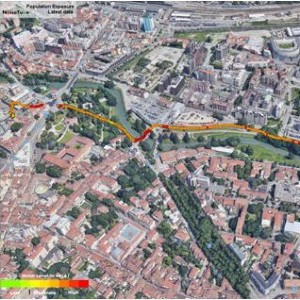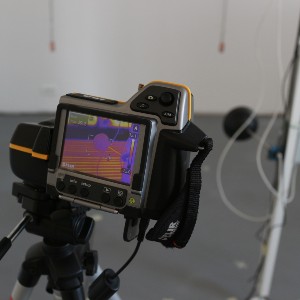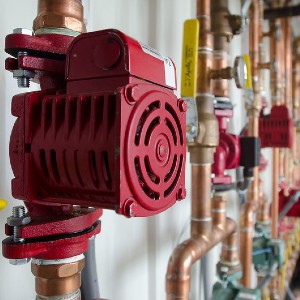LabAcus
Applied Acoustics Laboratory
The “LabAcus” Applied Acoustics Laboratory has three reverberating rooms for measuring the sound absorption characteristics of materials and objects, the sound power emitted by machines and equipment and for determining the airborne sound reduction index of building elements. The Acoustics Laboratory works with instrumental chains for the measurement of sound pressure levels (multi-channel acquisition systems and integrating sound level meters) and with simulation software of the free and reverberated acoustic field.
The “LabAcus” Applied Acoustics Laboratory carries out measurements in the laboratory and on site of acoustic quantities (sound power of machines and equipment, sound absorption of materials, sound insulation of building elements and construction systems); computational simulation of the sound field indoors and of sound propagation outdoors; analysis and optimization of the acoustic emission of components and systems for air conditioning and conditioning.
CORE-CARE
CORE CARE (COntrolled Room for building Environment Comfort Assessment and subjective human Response
Evaluation) is a laboratory where it is possible to control the main Indoor Environmental Quality (IEQ) parameters. For this purpose each internal surface temperature (floor, walls, ceiling) can be managed autonomously. The ventilation rate can be controlled as well as the supply temperature and relative humidity. In the room it is possible to check the comfort conditions of occupants and their productivity.
The laboratory reproduces the indoor workplace of an office. A panel of occupants performs tests and questionnaires.
The project has been co-financed by a Twinning project funded by the Department of Industrial Engineering of the University of Padova, together with more than fifteen companies active in the HVAC sector and the Q-RAD consortium.
BRAIN Lab
The BRAIN Laboratory (Building Response and Aggregation In energy Networks) has been activated within the research project “A novel method for active demand response of distributed heat pumps” (SID 2017). The Laboratory aims to test control logics both at district level, using numerical computer simulations, and at single machine level, transferring the optimization code developed on hardware support, interacting with environmental sensors within an IoT system. Active Demand Response actions are also analysed in the Lab, defined as the temporary deviation of energy demand from a reference scenario, without affecting the normal operations of the building. This is advantageous from the point of view of electricity consumption savings and allows a more widespread use of intermittent renewable sources.
LEARN MOREUniZEB
UniZEB is a laboratory run by students that promote environmental, social and economic sustainability through study, research and training of excellence.
The research purpose promoted by the UniZEB laboratory consists in studying the interaction between the different technological components of a building, from different points of view.





